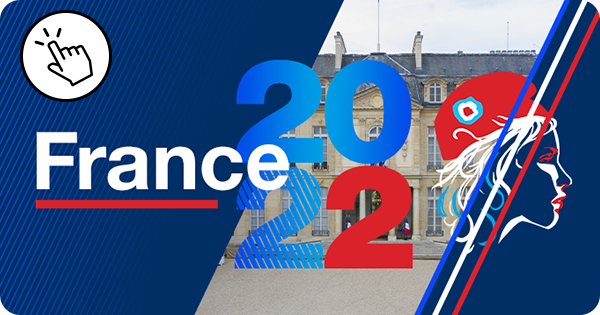President Emmanuel Macron’s government has said it is open to discussing “autonomy” for Corsica in a bid to calm days of violent protests on the Mediterranean island with just weeks to go before France’s presidential election.
Interior Minister Gerald Darmanin dropped the A-word as he set off for a two-day visit to Corsica on Wednesday, two weeks after a violent assault on a jailed Corsican nationalist triggered a wave of unrest on the île de Beauté (island of beauty).
“We are ready to go as far as autonomy. There you go, the word has been said,” Darmanin told regional newspaper Corse Matin, treading ground that has long been regarded as taboo in France’s highly centralised republic.
“The talks (on autonomy) will necessarily be long and difficult,” he later told BFMTV, adding that, whatever the result, Corsica's “future is fully within the French republic”.
With Macron seeking re-election next month, the offer from France's "top cop" was always bound to come under close scrutiny from rivals for the presidency, some of whom decried an opportunistic move.
Valérie Pécresse, the candidate for the conservative Les Républicains, blasted the president for “giving in to violence”, while far-right rival Marine Le Pen accused him of “cynical clientelism”. “Corsica must remain French,” she added.
“As always with this government, things need to turn ugly before it starts looking for solutions,” lamented Green Party nominee Yannick Jadot, who, along with most left-wing candidates, spoke in favour of autonomy for the Mediterranean island.
‘Statu francese assassinu’
Darmanin’s visit follows repeated outbreaks of violence at protests triggered by a savage prison attack on Yvan Colonna, one of a group of Corsican nationalists jailed for the 1998 murder of Corsica’s prefect, the island’s top official, Claude Erignac.
The interior minister said the convicted killer had been attacked by a jihadist fellow inmate after reportedly making “blasphemous” comments at their jail in Arles, in southern France. He described the assault, which left Colonna in a coma, as “clearly a terrorist act”.
>> Read more: Prison attack on Corsican nationalist reopens old wounds on restive French island
However, Corsican nationalists have blamed the French state for the attack on Colonna, regarded by many as a hero of the independence cause after he eluded capture for 1,503 days while hiding in the Corsican scrubland. They point to the French state’s longstanding refusal to transfer Colonna and his accomplices to a jail in Corsica, closer to their families.

Over the past two weeks, protesters have targeted government buildings and French symbols, including the national flag, marching under the rallying cry of “Statu francese assassinu” (The French state is an assassin). Prosecutors said some 102 people were injured on Sunday alone, 77 of them police officers, during clashes in Corsica's second-largest city Bastia.
The government has tried to soothe the anger by lifting the “special prisoner” status that barred Colonna and two of his accomplices from being transferred to a Corsican jail. But the move failed to placate protesters, for whom the belated announcement added insult to injury.
Spectre of armed struggle
Aside from the return of Corsican prisoners, nationalists have long clamoured for greater powers for the island and recognition of Corsican as an official language. Such demands remain highly sensitive in France, where politicians routinely tout the need to protect the country’s unity and national identity.
After decades of violent struggle, Corsica’s nationalists have embraced the democratic process over the past decade, hoping to advance their cause by peaceful means. But experts warn that patience is wearing thin amid mounting frustration at the lack of progress.

Macron has previously said he is open to adding a specific mention of Corsica in the French Constitution, while rejecting more substantial demands for autonomy made by the island's nationalist leaders.
Gilles Simeoni, the nationalist head of Corsica’s regional council, said Darmanin’s words “open up prospects, but they must now be extended and firmed up”. He noted that autonomy is “common law for many European regions and especially for all the major islands in the Mediterranean.”
The island will need “strong signals before believing” change is on the cards, added Marie-Antoinette Maupertuis, the head of the regional parliament.
An Ifop poll published by Corse Matin on Wednesday suggested that around half of French people would back autonomy for the region. The same survey found that 60 percent were opposed to full independence, which only some Corsican nationalists advocate.
In an ominous sign, the National Liberation Front of Corsica (FLNC), which carried out deadly attacks for decades before laying down its arms in 2014, warned Wednesday that it could resume its fight if Paris remained in a state of “contemptuous denial”.
“If the French state stays deaf... then the street fights of today will quickly spread to the hills at night,” it said in a statement to Corse Matin, referring to the 4,500 attacks it has claimed since the 1970s.







